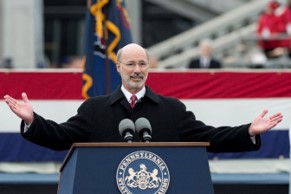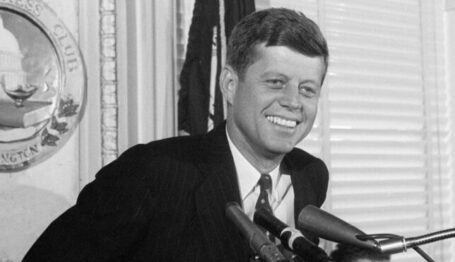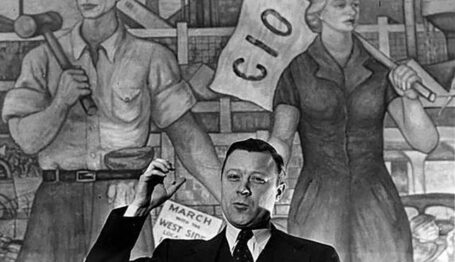Labor Watch
Public-Sector Unions in Pennsylvania
 Governor Tom Wolf. License: https://bit.ly/31xSuSw.
Governor Tom Wolf. License: https://bit.ly/31xSuSw.

Labor Watch on Pennsylvania (full series)
Public-Sector Unions | The Janus Effect
Workers Seeking Retroactive Refunds | Where Does the Money Go?
Summary: The school choice movement in Pennsylvania has remained at a disadvantage, and education reform has stalled because government employees who support legislation to expand scholarship opportunities or boost charter schools have had part of their wages taken to finance political activity that undercuts their own policy preferences. The problem stems from deeply ingrained features of Pennsylvania labor laws, but legislative and legal pressure to reform these outdated statutes has been building in recent months thanks to the U.S. Supreme Court’s decision in Janus v. AFSCME. What happens in the Pennsylvania courts and state legislature will likely ripple across state lines.
Public-Sector Unions
Not everyone in Pennsylvania agrees with Democratic Gov. Tom Wolf’s education policies, and not everyone shares his hostility toward school choice initiatives. But everyone in the commonwealth who has worked in the public sector since Wolf became governor has been footing the bill for the political activism attached to Wolf’s policy agenda in the form of union dues or fees.
Last June, the governor vetoed HB 800, which would have expanded Pennsylvania’s Education Improvement Tax Credit (EITC) by $100 million. The EITC and a companion program, the Opportunity Tax Credit (OSTC), offer private school scholarships to about 50,000 low-income families with K–12 students. Together, the programs have saved state taxpayers about $5 billion since 2002, according to a study from EdChoice. They also enable state residents of limited financial means to break orbit from schools in their district that have failed to deliver a quality education. But Wolf wasn’t finished. Just a few months later, he rolled out a series of executive orders and proposed legislative action that would cut funding and limit enrollment for charter while imposing a moratorium on any new cyber charter schools.
Parents, students, teachers, business leaders, and other average citizens who favor school choice initiatives have a strong ally in House Speaker Mike Turzai (R-Allegheny County), who was the lead sponsor of HB 800. Turzai participated in a roundtable discussion with U.S. Education Secretary Betsy DeVos this past fall when she visited the Harrisburg Catholic Elementary School. He joined with other proponents of school choice from across the state to learn more about the administration’s proposed Education Freedom Scholarships and how they might complement his own legislation.
But Turzai and the constituency he champions from inside and outside his district are up against well-funded public employee unions, which have made significant campaign contributions to Wolf and other elected officials in both parties who have resisted education reform measures. Charles Mitchell, the president and CEO, of the Commonwealth Foundation, a free market Pennsylvania think tank, credited Turzai for advancing the cause of education reform in a press release:
“Last year, Speaker Turzai was the driving force behind one of the largest school choice expansions in America,” Mitchell said in the release. “Over Gov. Wolf’s opposition, he led lawmakers in expanding Pennsylvania’s tax credit scholarship programs by $30 million. This reform, coupled with a 2018 expansion, opens the door for up to 27,500 more students to attend better schools each year.”
But the school choice movement in Pennsylvania has remained at a disadvantage, and education reform has stalled because government employees who support legislation to expand scholarship opportunities or boost charter schools have had part of their wages taken to finance political activity that undercuts their own policy preferences.
The problem stems from deeply ingrained features of Pennsylvania labor laws, which are laced with perks and privileges for union leaders. But legislative and legal pressure to reform these outdated statutes has been building in recent months thanks to Janus v. AFSCME, a U.S. Supreme Court ruling published on June 27, 2018.
In the next installment of Labor Watch on Pennsylvania, find out how the Janus decision is affecting Pennsylvania.



